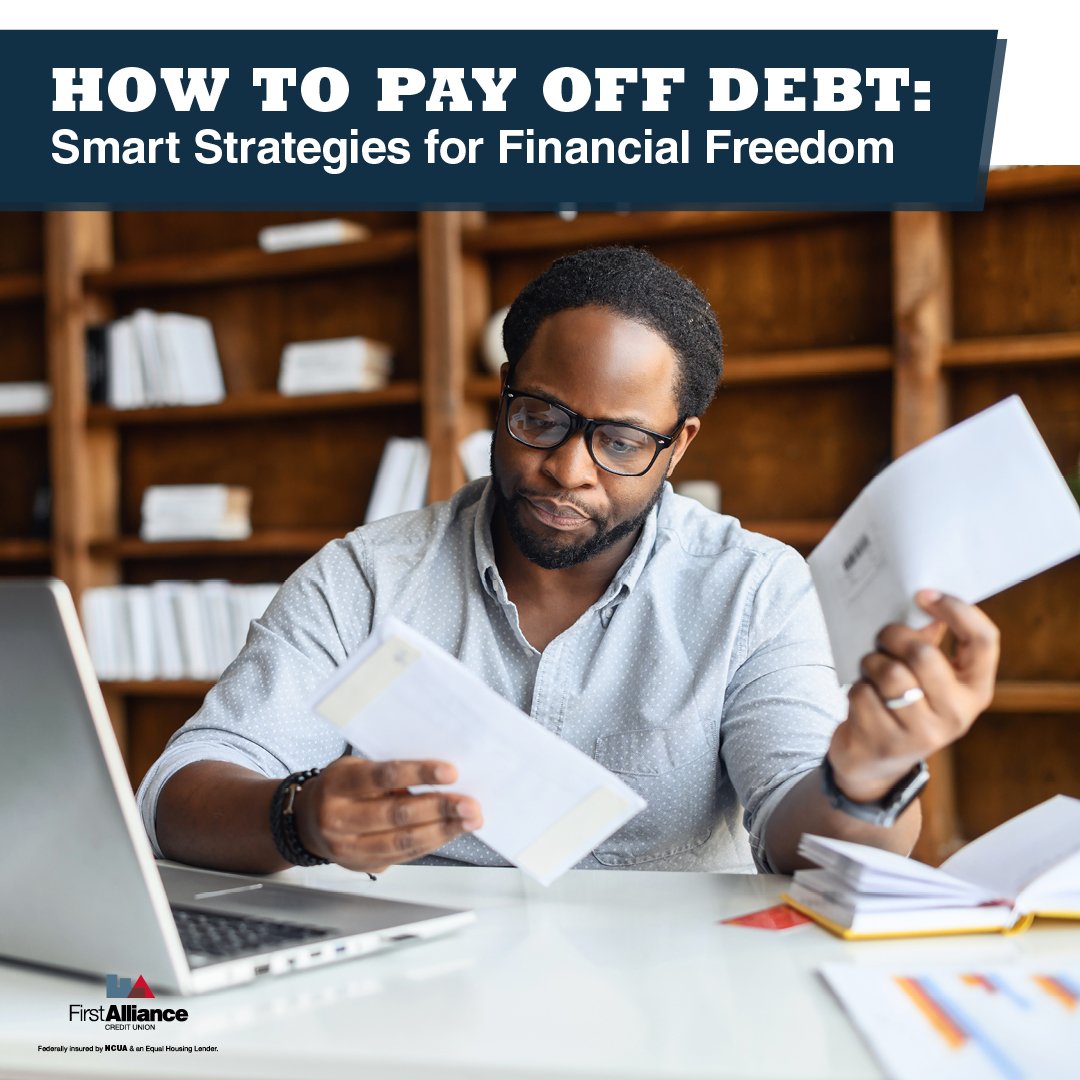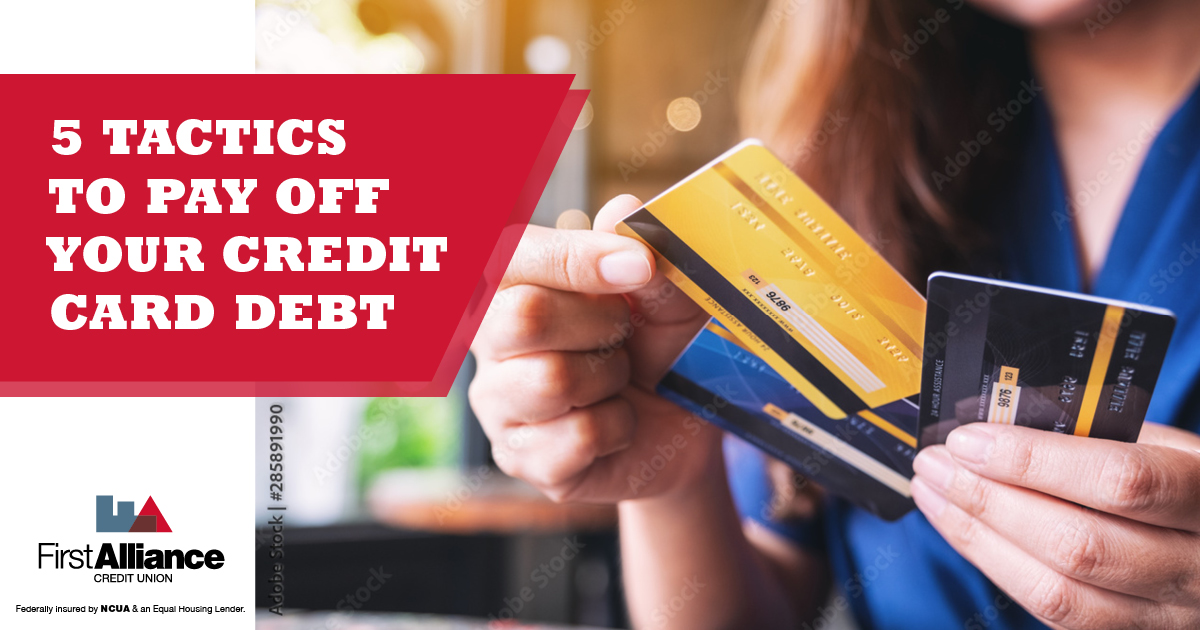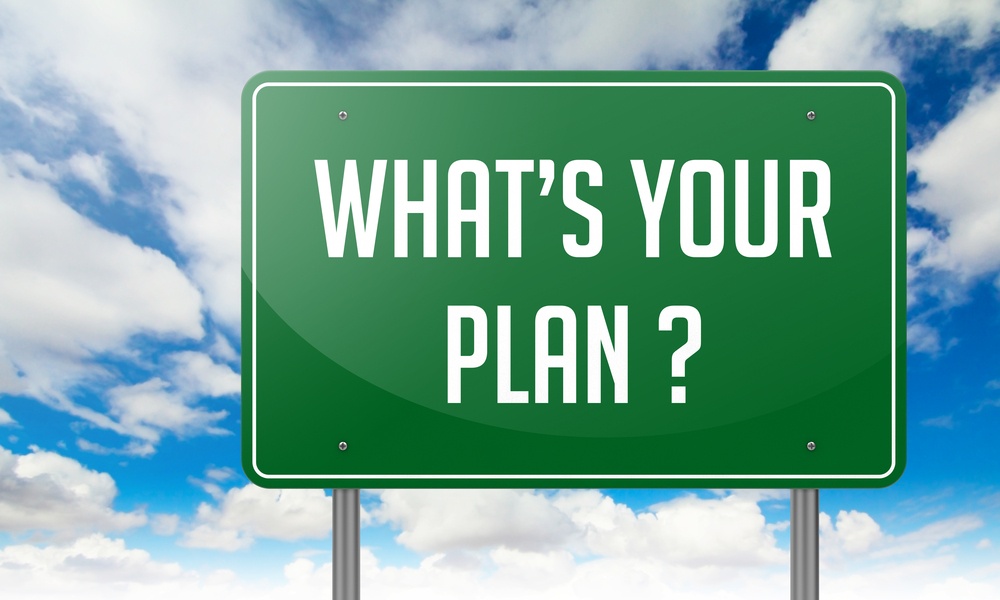The Best Strategies to Help you Quickly pay off Credit Card Debt
When most people realize that they’ve racked up a significant amount of credit card debt, they usually have two thoughts. The first one is that they...
4 min read
 Kamel LoveJoy
:
Jun 3, 2025 5:00:00 AM
Kamel LoveJoy
:
Jun 3, 2025 5:00:00 AM

Are you feeling like your debt is slowly taking over? It’s tough, but trust me, you’re not alone—and the good news is, there’s a way out. Whether you’re living paycheck to paycheck or just feeling overwhelmed by bills, there are steps you can take right now to get on track and start paying off that debt.

Before you can make a dent in your debt, you’ve got to understand where your money is going. This is where the budgeting part comes in. It might sound intimidating, but once you start tracking your expenses, you’ll have a clear picture of how much you’re spending and where you can cut back.
Jordan, our Loan Portfolio Manager at First Alliance Credit Union, says that many people don’t realize how small, everyday purchases can add up. For example, if you’re spending $14 a day on things like coffee or snacks, that’s $420 a month you could be saving and putting toward your debt. Little changes add up over time, and knowing where you stand financially is the first step in getting back on track.

Once you’ve got a handle on your spending, it’s time to focus on paying down your debt. One effective strategy is the snowball method—and it’s not just about paying off your debt; it’s about creating wins that keep you motivated.
Here’s how it works: Start by paying off your smallest debt first. Whether it’s a credit card or a small loan, throw any extra cash you have at that debt until it’s paid off. When that debt is gone, move on to the next smallest debt, and keep rolling that extra payment forward.
The snowball method isn’t just a numbers game—it’s about building momentum. The faster you pay off a debt, the more motivated you’ll be to tackle the next one. Before you know it, you’ll see your debt shrinking, and that feeling of accomplishment will keep you going.
While paying off debt is important, you don’t want to ignore building a safety net for emergencies. Jordan recommends having at least $1,000 saved up for emergencies before you get too aggressive with your debt repayment. Why? Because having a cushion means you won’t have to rely on credit cards or loans if something unexpected happens—like a car repair or medical bill.
Once you’ve got that emergency fund in place, you can focus more on aggressively paying down debt. But if you do end up using your savings for an emergency, don’t panic. That’s exactly what it’s there for. Just make sure to rebuild your savings as soon as you can.
If you have high-interest credit card debt or multiple loans, debt consolidation might be a good option to help make your debt more manageable. Consolidation can involve taking out a personal loan or transferring your high-interest debt to a lower-interest option. This way, you can simplify your payments and reduce the interest you’re paying over time.
However, be sure to shop around for the best rates before you consolidate, and make sure you have a plan to stay out of debt after consolidation. If you consolidate and then keep using your credit cards, you could end up back where you started.
Payday loans can seem like a quick fix when money is tight, but they’re a slippery slope. With their sky-high interest rates and short repayment terms, payday loans can leave you stuck in a cycle of debt. Instead of turning to payday loans, reach out to a trusted financial institution like First Alliance Credit Union. They can help you find better solutions, whether it’s a personal loan or other options that won’t trap you in a debt cycle.
Use Credit Card Balance Transfers Wisely
If you have credit card debt, a balance transfer might be an option to help you save on interest. Many credit cards offer 0% interest on balance transfers for an introductory period, which could save you money as you work to pay off your debt. Just make sure you pay off the balance before the promotional period ends—if not, the interest will kick in, and you’ll end up right back where you started.
Debt Management vs. Debt Settlement

If you’re feeling like you’re at the end of your rope with your debt, you might be considering a debt management plan or debt settlement. While both options can help, they come with different consequences.
A debt management program allows you to make one payment to a third party who will distribute it to your creditors. This can sometimes result in lower interest rates, which will help you pay off your debt faster. Plus, you’ll maintain a good credit score.
On the other hand, debt settlement involves negotiating with creditors to pay less than what you owe, which can damage your credit score. While it may seem like a quick way out, the long-term consequences can be more harmful than helpful.
Paying off debt isn’t a quick fix, but it’s absolutely achievable. The key is to be consistent, make a plan, and stick to it. Start with small wins, create a budget, build an emergency fund, and consider debt consolidation if it makes sense for your situation.
The experts at First Alliance Credit Union are here to help you every step of the way. Whether you’re looking for debt repayment strategies, low-interest loans, or financial advice, don’t hesitate to reach out for guidance.
Ready to take the first step toward paying off debt? Visit First Alliance Credit Union for more tools and resources to help you get on track.

When most people realize that they’ve racked up a significant amount of credit card debt, they usually have two thoughts. The first one is that they...

Many people say that they would love to pay off their debts. However, they're not quite sure just how to pay off debt. Fortunately, there are several...

Many people carry revolving debt with their credit cards. Reducing debt can help one’s chances to be considered eligible for loans. The drawbacks...